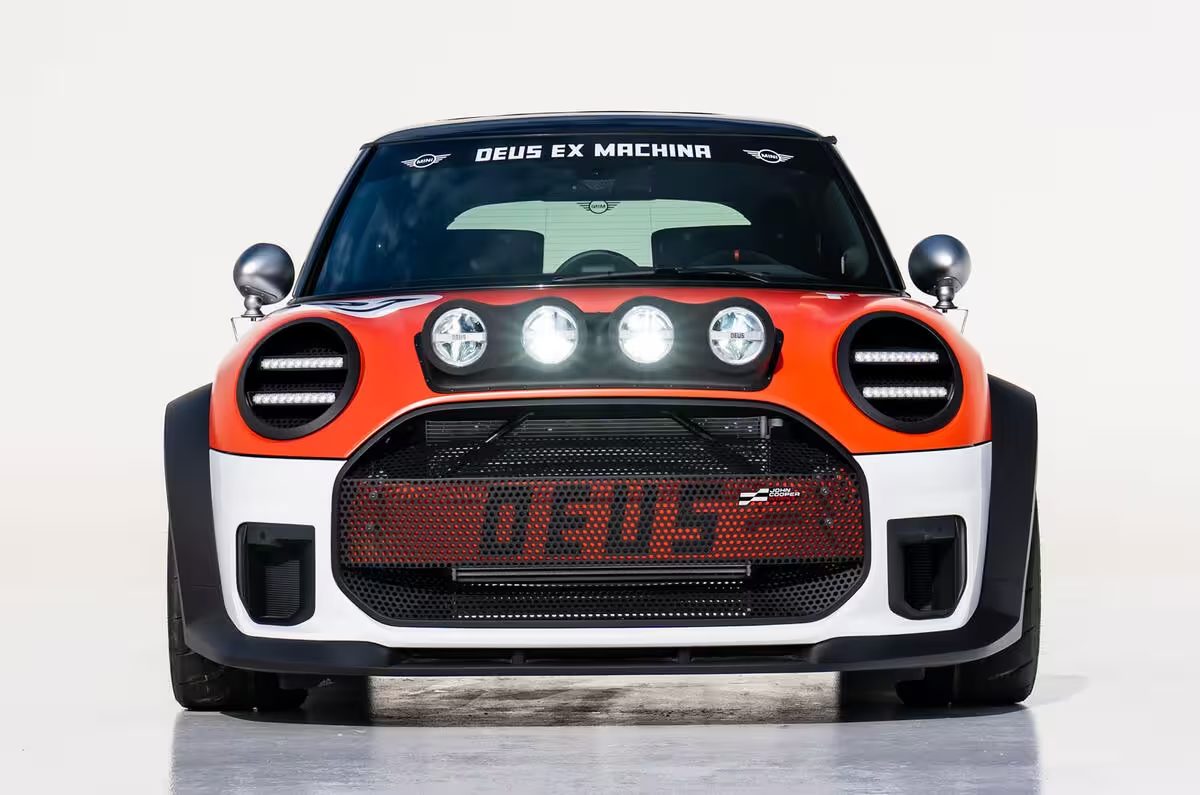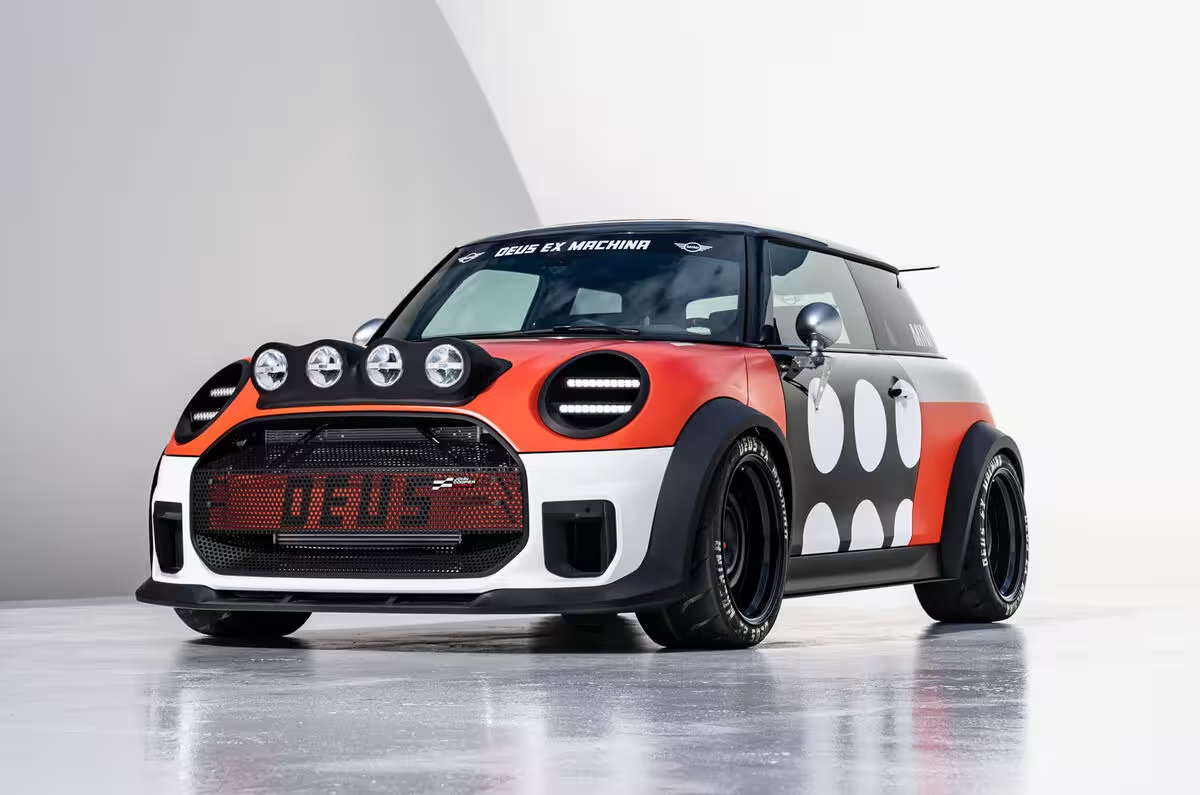4 Minutes
Mini returns to performance with two JCW concepts
Mini has signalled a renewed focus on high-performance models with two stripped-down John Cooper Works concept cars developed with surf and lifestyle brand Deus ex Machina. Billed as design-led experiments rather than production intent, The Skeg and The Machina reinterpret the Cooper JCW hatchback in electric and petrol form, respectively, and draw heavily on motorsport, fashion and surf culture.
Design & styling: surfboard fibres and rally cues
The Skeg — surf-inspired lightweight bodywork
The Skeg channels surfing culture. Its body panels are crafted from fibreglass — the same high-quality composite used in premium surfboards — which Mini says trims roughly 15% from the standard Cooper JCW kerb weight (from about 1,725 kg to around 1,470 kg). Visual changes include a pronounced front splitter, chunky wheel-arch extensions and a large, aggressive rear spoiler that give the electric Cooper a tougher stance.
The Machina — rally and track DNA
The Machina is a modern nod to Mini’s racing past. A bonnet-mounted light pod references the brand’s rally history, while the rear diffuser takes inspiration from Mini’s recent Nürburgring 24 Hours entrant. The car also wears a larger aero wing whose silhouette recalls the radical Can-Am prototypes of the 1970s.
Interior and weight-saving measures
Both concepts embrace a bare-bones interior philosophy. The Skeg removes the roof lining and rear seats, replacing cloth door cards with single-piece fibreglass panels and fitting racing-style bucket seats up front. The Machina goes further: rear seats are swapped for a structural strut brace, door cards are removed entirely and three-point belts are traded for racing-spec harnesses, reinforcing the concept’s track-focused intent.

Performance & specifications
The Skeg is based on Mini’s electric Cooper JCW. While Mini hasn’t released bespoke power figures for the concept, the production electric JCW’s front-mounted motor is rated at 255 bhp and 258 lb-ft of torque, delivering a factory 0–62 mph time of 5.9 seconds. The substantial weight reduction achieved by The Skeg’s fibreglass bodywork should materially improve acceleration and handling, especially in transient response and braking.
The Machina rides on the petrol Cooper JCW platform and focuses on aerodynamic and chassis upgrades rather than outright power increases in this concept form. Both cars are presented as creative showcases that explore how lightweight materials, aero and racing equipment could sharpen the JCW driving experience.

Market positioning and comparisons
Neither The Skeg nor The Machina will enter production; instead, they act as statements of intent for the JCW sub-brand. These concepts are the most extreme JCW treatments since the last-generation GP ended production in 2023 and suggest Mini is exploring more focused, track-capable variants. In the broader hot-hatch and performance compact market, a lightweight electric JCW with improved power-to-weight would compete for attention with established performance models and specialist track-focused compacts from rival brands.
Conclusion
Mini’s collaboration with Deus ex Machina delivers two vivid concept cars that fuse brand heritage with cultural influences. The Skeg emphasises lightweight construction and surfing aesthetics, while The Machina celebrates rally and endurance-racing cues. Both reinforce Mini’s sporting credentials and hint at what a future, more extreme John Cooper Works range could look like if elements of these concepts were carried into production.
Source: autocar.co

Leave a Comment